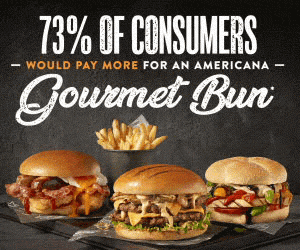Feature: Energy prices

With the government’s plan to lower energy prices being unexpectedly overtaken by events, Henry Norman recaps reaction and asks if it goes far enough...
Following months of speculation – and, no doubt for many, worry – the eventual election of the new prime minister, Liz Truss, led to the government finally revealing its strategy to tackle the escalating energy crisis recently. However, an announcement that had already left many in hospitality feeling further uncertainty was then hit by the breaking of an even bigger story, which understandably removed the strategy from the top of the news agenda, preventing much in the way of further scrutiny.
This all came on the same day that a survey by UKHospitality revealed that hospitality businesses are experiencing an average energy increase of 238%. The upshot of this is that a shocking three in five operators said that they feared they may not survive as a result.
The maximum amount for an average household's energy consumption was due to rise to over £3,500 in October, with some projections saying that bills would subsequently reach more than £6,000 next year. It’s worth remembering that this figure was as low as £1,277 per month before the Russian invasion of Ukraine precipitated this exponential escalation.
Truss’s announcement set an annual £2,500 cap for households over the next two years. Along with the previously promised £400 grant, and a temporary removal of £150 of green levies, average household bills will apparently remain at around their current level of £1,971. However, crucially, businesses will only have their energy costs capped at the same price for the next six months.
"We will support all businesses, charities and public sector organisations with their energy costs this winter, offering the equivalent guarantee for six months," said Truss. "After those six months, we will provide further support to vulnerable sectors such as hospitality."
As to who exactly will pay for all of this, Truss, an ex-Shell employee, reiterated her refusal to fund it via a windfall tax on the energy companies, as proposed by Labour and the Liberal Democrats. It will instead be funded via further borrowing – with experts predicting that the total bill will come to approximately £150bn.
The British Takeaway Campaign pithily summarised the situation as seen by many in the industry, saying: “The government’s promise of a price cap will provide some relief for businesses, but with a commitment for the cap to last only six months, this plan doesn’t provide the assurances businesses need. Time is running out for Liz Truss – real action is needed now.”
Kate Nicholls, chief executive officer of UKHospitality, struck a similar tone, elaborating: “We very much welcome the prime minister’s recognition of the specific struggles the hospitality industry faces and the promise of further support, alongside her positive plan to help consumers and businesses tackle rising energy bills. We look forward to working with the new government on developing plans that will support long-term recovery for our sector, but in order to give businesses big and small a chance to make it to the spring we will need support this autumn and winter.”
Nicholls demanded measures that will “provide a swift cash injection”. These included cutting VAT for the sector to 10% and providing business rate relief.
“While the welcome energy price freeze will ease the pressure on our customers and colleagues, high bills will still constrain spending in the sector and operators themselves will still have to fund energy bills and other rising costs,” she added. “For many hospitality businesses this will prove too much to bear, and hundreds of community assets will be shut and jobs lost unless additional support is brisk and bold.”
This was all followed by the latest figures from the Office of National Statistics showing that the UK economy grew by less than predicted in July – by 0.2%, as opposed to the forecast 0.3%. And even these figures were artificially inflated, as June was hampered by the extra bank holiday for the jubilee, while July was boosted by the Lioness’s thrilling victory at the Euros and the Commonwealth Games.
Lesley So, founder of So Good Kombucha, failed to recognise even these modest gains, though, reflecting: "Our bills have more than doubled over the past three months and the price of raw materials like our glass bottles has increased by 50% over the past year. We can't afford to raise our prices as we compete against mass-produced drinks that are a lot cheaper to make and so we have no choice but to continue to take massive hits on our margins. I'm afraid that this will get worse through the winter as demand for cold drinks drops and our bills continue to soar.
“This is going to significantly impact our ability to fulfil the whole point of the business, which was to create jobs for refugees and others who are marginalised in our communities. If this continues, many small businesses around the country like ours will really struggle to survive. To us, it doesn't feel like the economy is growing."
Maryann Penfold, owner of Boom Sauce, reacted uncannily similarly, echoing: “The economy is broken, with inflation and rising interest rates destroying small businesses by the day. It certainly didn't feel like the economy grew in July.
“I am genuinely worried about the future of my own business as customers are spending much less. I cannot increase my prices, as that risks losing customers, and equally I cannot reduce them as the cost of ingredients has shot up.
“Many small artisan producers like me are in a Catch-22 situation. Lowering prices when raw material costs are skyrocketing just isn't viable.”
At the time of writing, while other news remains on the backburner for now, two stories are breaking that could change the picture further. First, there are predictions that the bank holiday that has been announced to mark the Queen’s funeral on 19th September, along with 10 days of national mourning, will adversely affect economic growth, tipping the UK into recession even earlier than previously predicted. The silver lining here is that surely many hospitality businesses will welcome another bank holiday almost as much as thirsty and hungry workers-cum-punters.
Second, there are reports that after six months, Ukraine is beginning to make real gains in its war against the Russians. This – regardless of its potential knock-on effect on energy bills and subsequently the out of home industry – has to be the most important welcome of all.

















